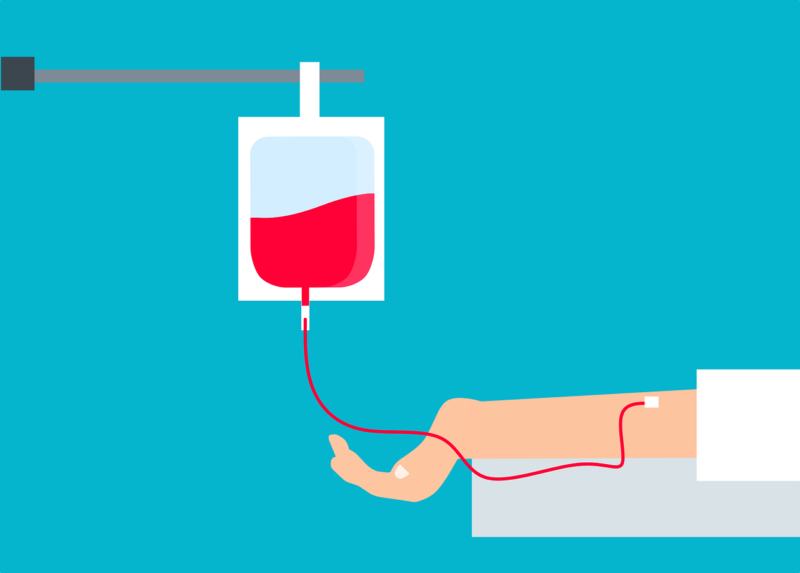Have you ever donated blood and thinking about why is blood donation important? In this article, we have written the significance of blood donation and all its donation processes. To understand well, just read this article carefully. The United States now has a population of around 328 million people. In the United States, roughly 6.8 million individuals donate blood every year.
This amounts to approximately 13.6 thousand tons of the whole blood received for donation in the United States each year.
Donors get approximately 40% of the government’s blood and blood cell elements from the Red Cross. Your blood donations are being used to help patients with severe surgeries, treatment for cancer, or dialysis due to catastrophic accidents. Blood donation is simply a living giving process. Also, the donor gets benefits by donating the blood to the patient. Continue to read to learn the importance of blood donation.
Importance Of Donating The Blood
Blood donation is important nowadays. All medical treatment relies on constant oxygenated blood from donors since one in every seven patients admitted to the hospital requires a blood transfusion. According to Moffitt, as cancer becomes more prevalent, so is the need for blood and plasma supplies.
An adequate supply of blood is required in all health organizations to fulfill the immediate needs of patients undergoing injuries and other life-saving treatments such as blood donations, which save the lives of millions of people every year. Do you know why blood donation is essential? Because giving blood is a straightforward operation that may be completed in about an hour. , blood donation is life existing procedure.
Why Is Blood Important?
Why is blood donation important? Life is impossible without blood. The flow of blood in the body is the leading cause of our existence on earth. Blood helps to carry oxygen and all the nutrients to all parts of your body. So that body works properly. Blood moves the carbon dioxide and other solid and liquid waste materials to the lungs, kidneys, and digestive system to extract them from the body. Blood also helps to fight against the germs that cause disease and makes you ill.
Likewise water, blood also plays an important role in balancing our body and keeping us active and alive.
Different Blood Groups
Blood type is classified into A, B, O, and AB categories. Blood donation has been critical in a variety of conditions. For example, blood is often transplanted to replenish hemoglobin that delivers oxygen in various situations when transfusion is required. In addition, bleeding, operation, or a medical procedure can all cause internal bleeding.
In addition, medical disorders that inhibit the body’s ability to produce healthy red blood cells Anemia, renal illness, cancer, malignancy, radiotherapy, and chronic illness can all limit the generation of new blood cells.
Haemophilia is an uncommon condition during which your plasma does not congeal effectively due to blood shortage. Thrombosis proteins and used to bleeding for a more extended period will cure the beneficiary with blood. An average person has around ten-point of blood in his body. During a scenario, about 1 point is awarded. Every six weeks, a regular donor can contribute red blood cells. All donated blood is tested and the results.
Age For Donating Blood
You can donate the blood if you are between the ages of 18 and 65. In some nations, government law allowed 16–17-year-olds to contribute if they meet the medical and hematological standards and receive proper permission. Regular donors above the age of 65 may be allowed in some areas in a competent physician’s opinion. Some nations have an upper age restriction of 60.
Weight For Donating Blood
But before you head on, make sure that you are in good shape for you to save lives! Before donating the blood, make sure your weight must be 50kg, which is the minimum or sometimes vary. In many countries, donor weight is about 45 kg to donate 350 ml ± 10%.
Types Of Blood Donation
There are many types of blood donation, and one person can donate blood in three different ways. Single blood can be classified into three main categories like red blood cells, platelets, and plasma. Whole blood donation is the most popular and adaptable type of blood donation. It is generally obtained in a single portion and utilized to assist hundreds of patients by separating it into different components.
Apheresis, the technique of separating plasma from other blood components, is used to collect plasma. It contains blood-clotting elements that are essential to assist trauma patients and those facing illnesses such as cancer.
The apheresis procedure also collects platelets. After the platelets are extracted from the donor’s blood, the red blood cells and other fluids are returned. Platelets are mostly given to cancer patients because they play an essential part in cancer treatment. The collection of just red cells by apheresis is known as double red cell donation. It permits donors to donate twice as much blood as they would normally. It can be utilized by anyone who is experiencing blood loss.
Conclusion
After reading this article, you’ll get the answer to why is blood donation important? To understand well, you must read this article thoroughly. I hope, so you like it, my friends! On the other hand, for more blood donation-related articles, read this one about “What is apheresis blood donation.”

